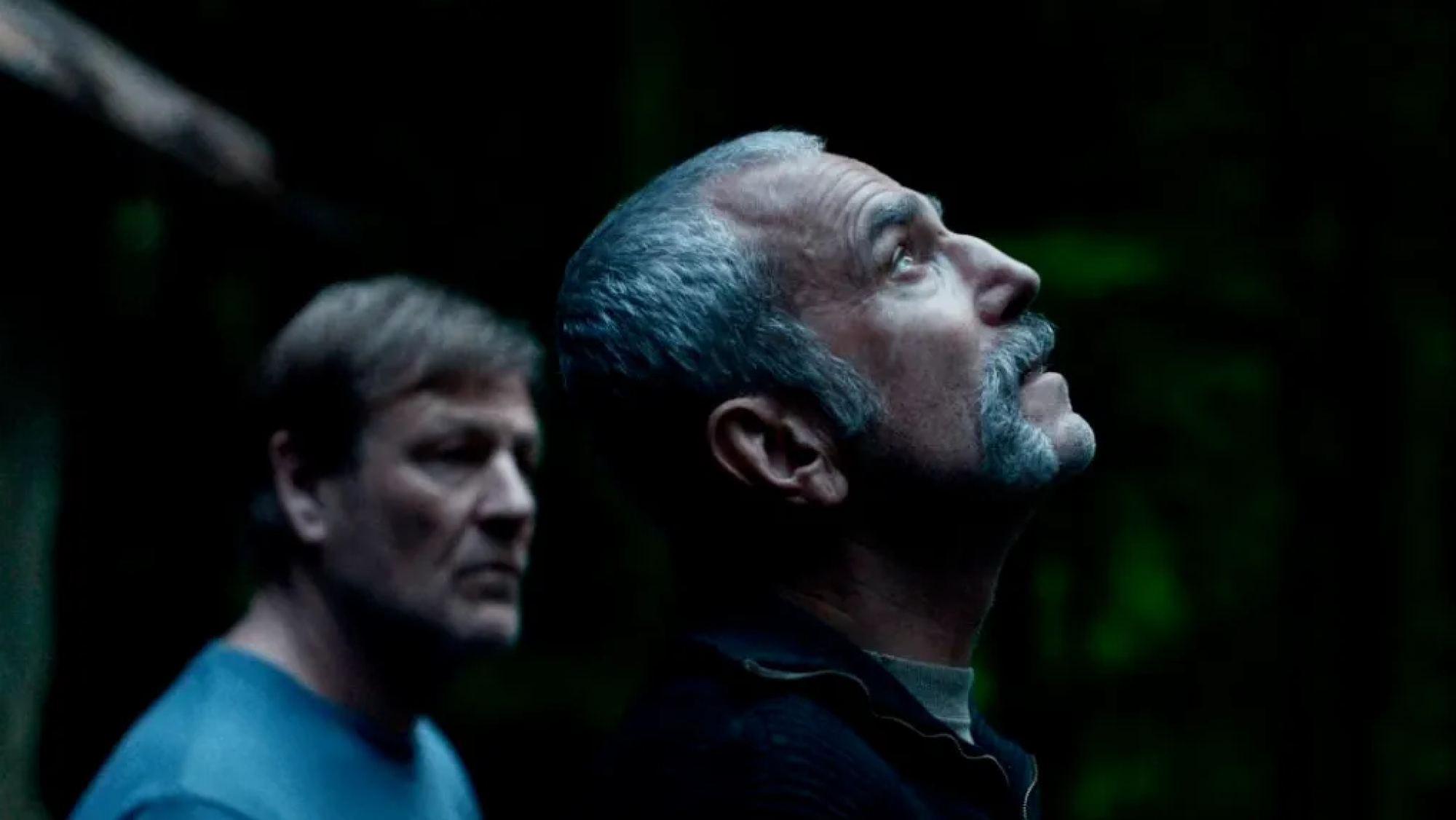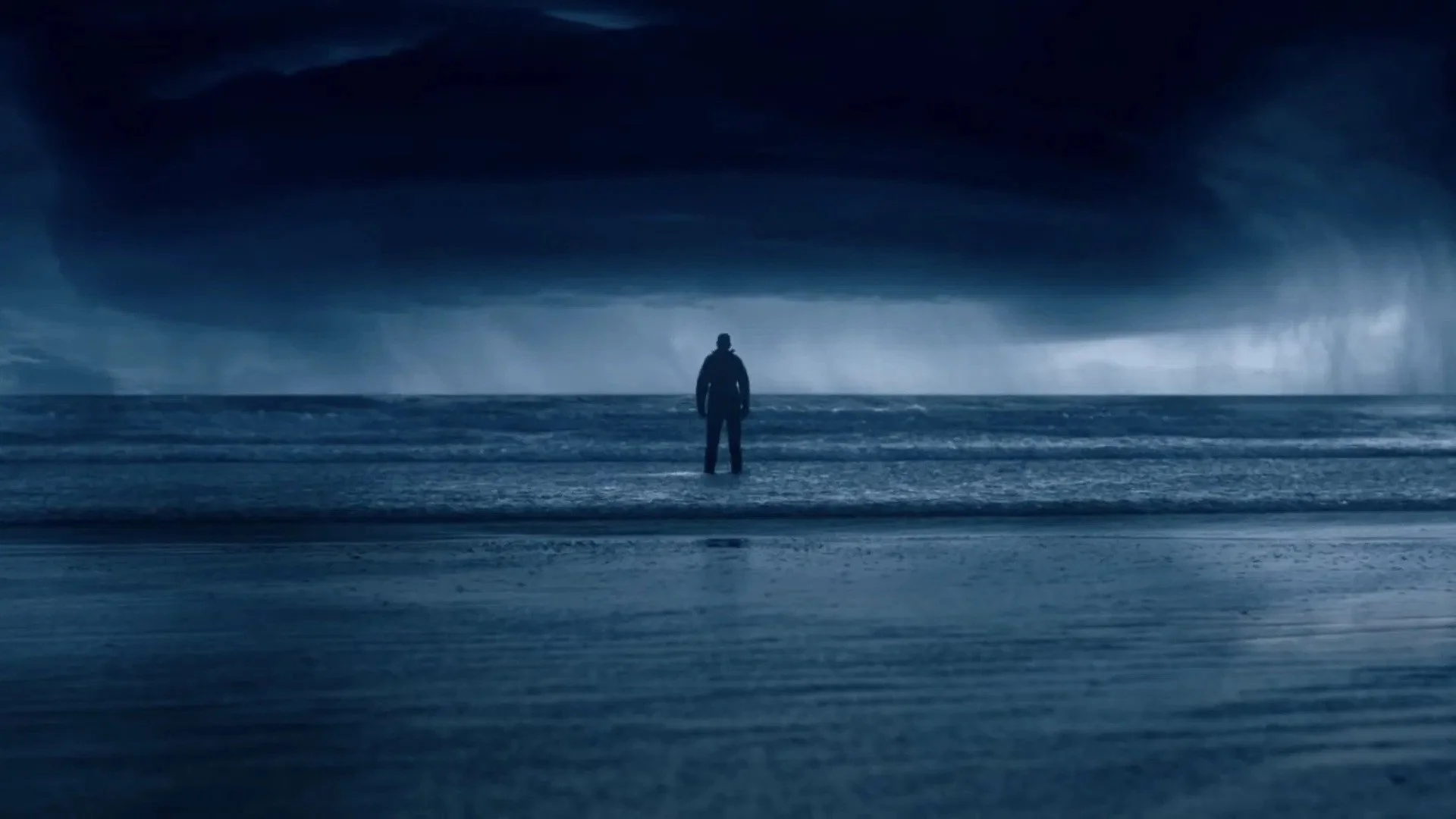‘Anemone’ Review: A Muted Return to the Screen for Daniel Day-Lewis
Anemone should only be watched by those craving another performance from Daniel Day-Lewis, because the film surrounding his incredible, controlled turn does not work at all.
If you’ve been aching to see the grand return of Daniel Day-Lewis on the big screen, one of our greatest living actors who came out of retirement to star in his son, Ronan Day-Lewis’s, feature directorial debut, Anemone, maybe even losing sleep over the thought of him finally back on our screens after an eight-year absence, go back to bed. He is the best part of this otherwise forgettable and meandering foray into feature filmmaking, which reeks of a “first draft of a student film,” characterized by visuals borrowed from other, more polished productions, and intriguing ideas never fully developed. At least Ronan has his father, who likely managed to convince Sean Bean and Samantha Morton to star in and lend more credibility to this horrid debut.
As a former film student myself, I never shied away from appropriating some of my personal and most significant influences into my short films. That said, they were done with the intention of studying different filmmaking techniques with the limited budget we had. How can we push this shitty Sony camera to attempt spectacular action, in the vein of a Zack Snyder or Paul Greengrass? We couldn’t, but we did it anyway, simply because it was fun. Film school is an environment to play – and one shouldn’t attempt to become “the next Alfred Hitchcock” when there’s only one who will ever attain his genius: the man himself.
However, when you jump into actual filmmaking, you need to find your own authorial voice and leave all obvious references out of the window. Obviously, some images will represent your inspirations, but they need to be decidedly yours. As polished and refined as the cinematography of Anemone is, with many sequences veering into otherworldly planes of existence, including magical realism, there isn’t one that seems to be setting Ronan Day-Lewis’ voice as a filmmaker to watch. With his father, who co-wrote the screenplay, he tackles a relatively simple story of two estranged brothers (played by Daniel Day-Lewis and Sean Bean) who reunite out of great urgency, which leads to this visual blur between reality and fiction, but with no meaning – or clues for the audience to parse – behind any of them.
Ray Stoker (Day-Lewis) has lived a life of isolation from some time, for reasons that will be cleared up as he begins to utter words (in the grand tradition of Daniel Day-Lewis’ Oscar-winning turn in Paul Thomas Anderson’s There Will Be Blood, it takes time for Ray to even say something) and his view of the world is revealed. He hasn’t seen his brother, Jem (Bean) in a long time, when he arrives at his secluded cabin to ask Ray to come home. In the civilized world, Ray’s son, Brian (Samuel Bottomley), who Jem adopted after Ray left his wife, Nessa (Samantha Morton) to fend for herself, is having personal issues, and Nessa believes it best if Ray comes and has a talk with him. This reunion is not as easy as it seems, since the two have both internal and external conflicts they need to resolve with themselves – and each other – before crossing the woods and returning to the modern-day civilization Anemone seems unwilling to even acknowledge.
It's a simple scenario, but Ronan Day-Lewis complexifies it by consistently blurring the lines between reality and fiction. Sometimes, he’ll muster up a staggering image or two, accompanied by an oddly familiar leitmotiv-heavy score from Bobby Krlic, which continuously recalls the Pixies’ “Where Is My Mind?” Maybe it was intentional, because Ray’s sense of self disassociates all-too-frequently, and he’s stuck in perpetual limbo between staying in the confines of his own regrets or moving forward into the future, with people who support him by his side, but it feels as if I’ve heard these patterns before, and I couldn’t shake it off my mind.
It's a fairly easy movie to grasp, even if Day-Lewis pads the runtime with several allegorical tableaux that are alluring to look at but mean nothing in the grand scheme of the picture. One such dream sequence sees Ray meet a creature that’s most definitely Brian, but the movie doesn’t seem interested in exploring what this fractured relationship means for the protagonist, and what these symbols encourages him to do as he prepares to reunite with his son whom he doesn’t have an inch of a connection with. I appreciate approaching familiar territories differently, sure, but when these narrative permutations don’t mean much, what’s the point? Ronan doesn’t help himself either when he continuously breaks the narrative – and thematic – momentum.
The story will frequently alternate between a strong dramatic moment between Ray and Jem, terrifically acted by both Daniel Day-Lewis and Sean Bean, and superbly mounted in its aural designs, to then quickly hamper it by cutting to the mundanities of Nessa and Brian’s lives, stuck in a perpetual rut that doesn’t seem to have a way out without explanation or reason behind this choice. It’s particularly confounding when the audience isn’t allowed to linger on scenes of intense power but go to the next narrative point, away from the secluded harshness of where Ray has spent the bulk of his isolation in, ensuring in our minds that what we’ve just experienced is unimportant.
At face-value, the parallel stories respond to each other, but their execution leaves much to be desired. We spend far too much time with Ray and Jem, whilst Nessa and Brian are left on the wayside, almost as if they’re props to Ray’s journey of self-actualization, instead of the fully-fledged and complex humans Ronan and Daniel likely wrote them as. In the finished product, though, Ronan’s direction has difficulty matching the “act like this may be the last performance I ever give on the silver screen” mentality of Daniel Day-Lewis, even if Ben Fordesman’s camera knows exactly where to place it for maximum dramatic impact.
And only the man who gave us Daniel Plainview in There Will Be Blood could make a lengthy monologue where he describes, in detail, how he violently defecated on someone work as well as it does here. But it also highlights Ray’s frightening – corrupted – nature that Jem desperately wants to get rid of. The final shot is one of Day-Lewis’ best of his entire acting career, encapsulating a raw sense of melancholy through one small look, as he gazes upon Brian and understands what his newfound purpose should be, as a father, and brother. He also shares palpable alchemy with Bean, who hasn’t given a bad performance, no matter how low his career has gone in recent years.
It's just a shame that everything around them doesn’t work. The staggering metaphorical images make for some great out-of-context Twitter screenshots, but they have little to no emotional impact within the picture. The monologues are riveting, thanks to Day-Lewis being the great actor he is but hold no substance in the bigger context of the movie, which attempts to link several stories together in a rather haphazard fashion. Themes of familial ties, depression, and guilt are explored, but never deepened, resulting in a painfully dull feature that, as a grand return for Daniel Day-Lewis on the big screen, feels more muted than the grandiose film likely all of us wanted to see.




